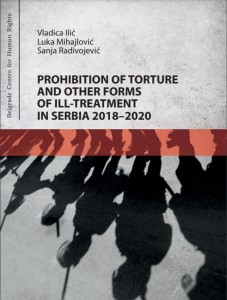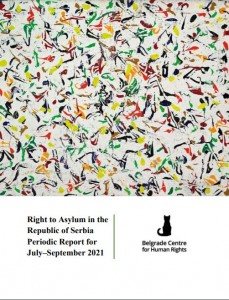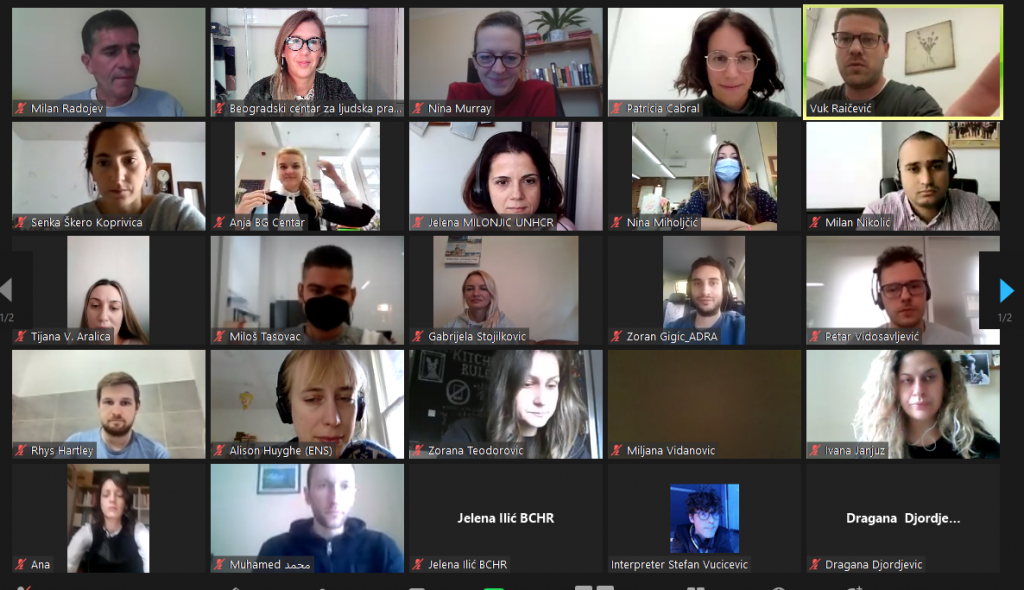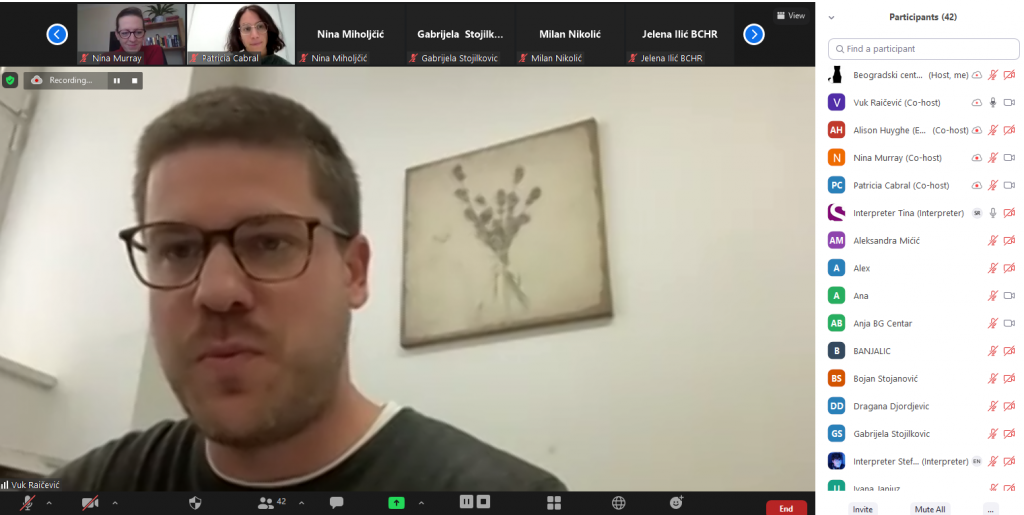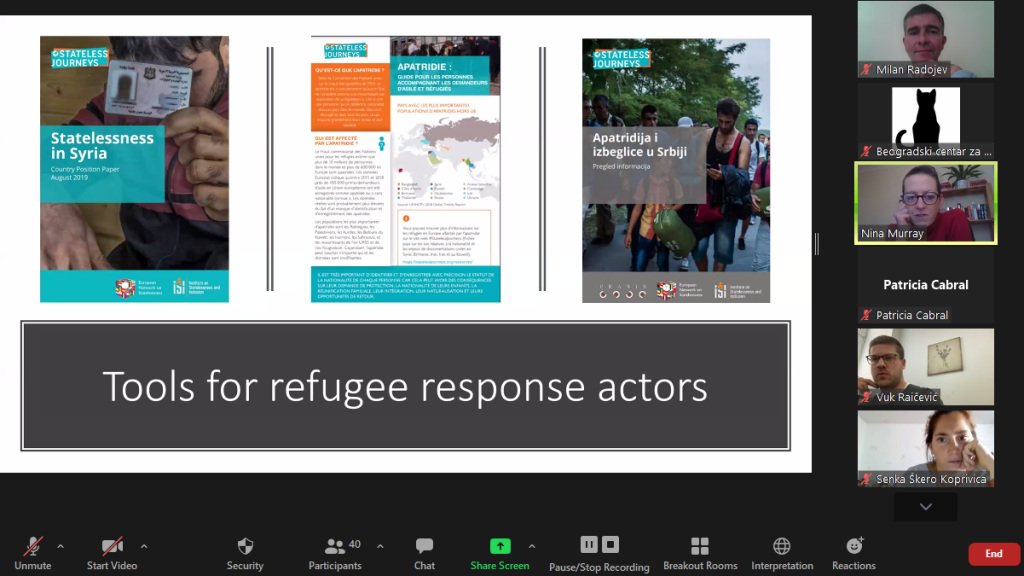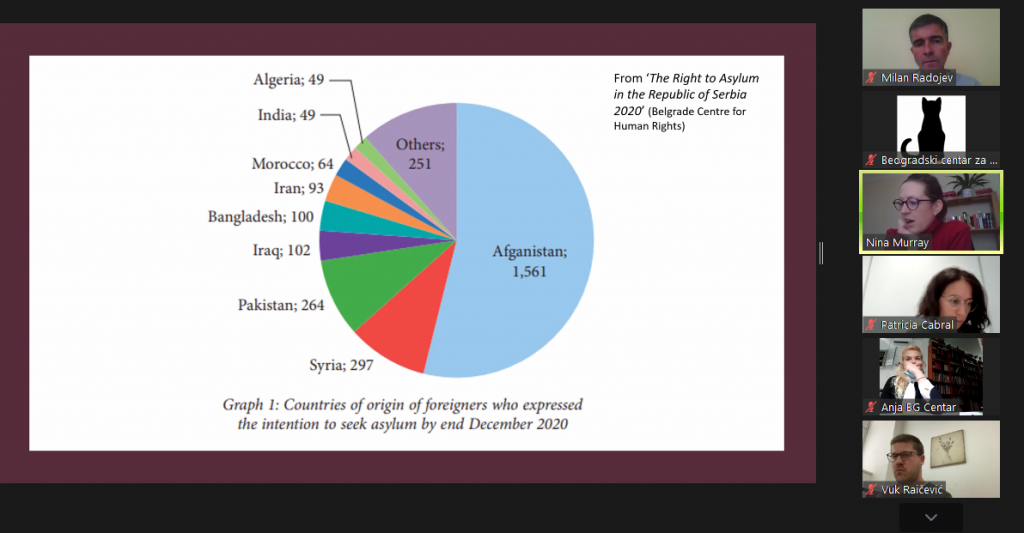26th “Vojin Dimitrijević“ Human Rights School Ends
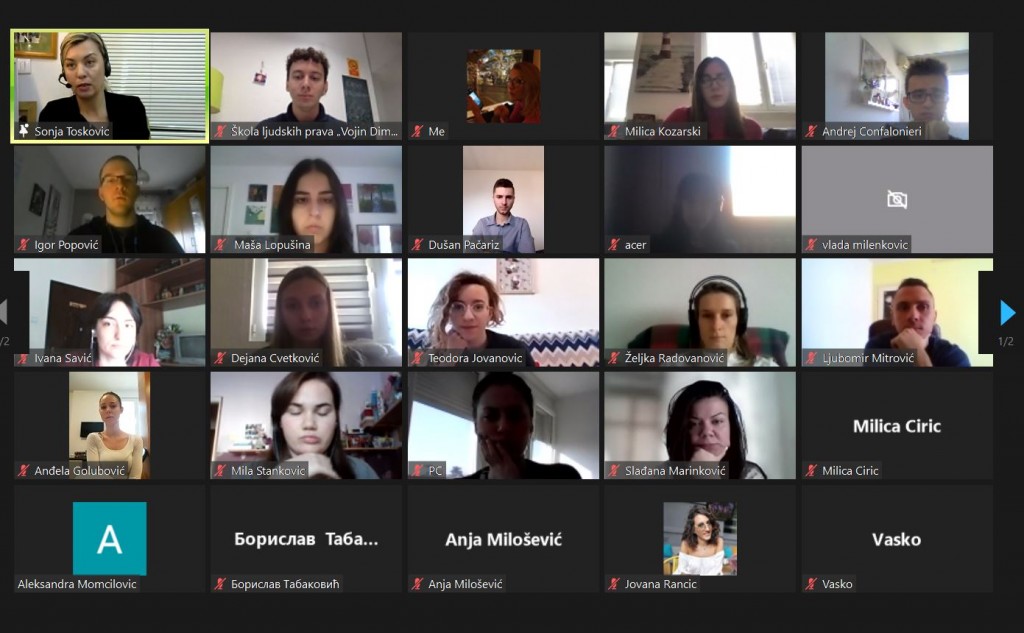 Another generation of students and young professionals successfully completed this year’s “Vojin Dimitrijević” Human Rights School on Wednesday, 15 December, which closed with a lecture on what non-government organisations are and why they are important. This, 26th Human Rights School was held online only, via ZOOM, because of the anti-pandemic measures.
Another generation of students and young professionals successfully completed this year’s “Vojin Dimitrijević” Human Rights School on Wednesday, 15 December, which closed with a lecture on what non-government organisations are and why they are important. This, 26th Human Rights School was held online only, via ZOOM, because of the anti-pandemic measures.
Thirty-two participants from across Serbia had the opportunity to attend intensive comprehensive training on human rights and their protection. They were familiarised with as many as 45 topics, notably, the development and sources of human rights law, as well as topics concerning the right to life, prohibition of discrimination, prohibition of torture, inhuman and degrading treatment or punishment, the right to liberty and security, the freedom of expression, media and human rights, personal data protection and access to information of public importance, international humanitarian law and many others.
Over 50 hours of lectures held during the “Vojin Dimitrijević” Human Rights School also covered privacy and human rights in the digital age, freedoms of association and public assembly, economic and social rights, asylum and migration, rights of the child, rights of national minorities and rights of LGBT persons. The participants also followed lectures on Chapters 23 and 24 of Serbia’s accession talks with the EU, judicial independence, protection of human rights before courts in Serbia and the right to a fair trial, international criminal courts, the European Court of Human Rights, the European Union and human rights, and protection of human rights before UN bodies. The lectures also covered the increasingly topical issues of business and human rights and the right to a healthy environment.
Most participants in the “Vojin Dimitrijević” Human Rights School are senior undergraduate and graduate students of law, political sciences and other social sciences. This year’s attendees also included students majoring in languages and biology. All of them signed up for the School because they wanted to learn more about human rights so that they could themselves engage in and contribute to their respect in Serbia in the future.
The holding of the Human Rights School was supported by the German Foreign Ministry via the Embassy of the Federal Republic of Germany in Belgrade and the Office of the United Nations High Commissioner for Refugees in Belgrade.









